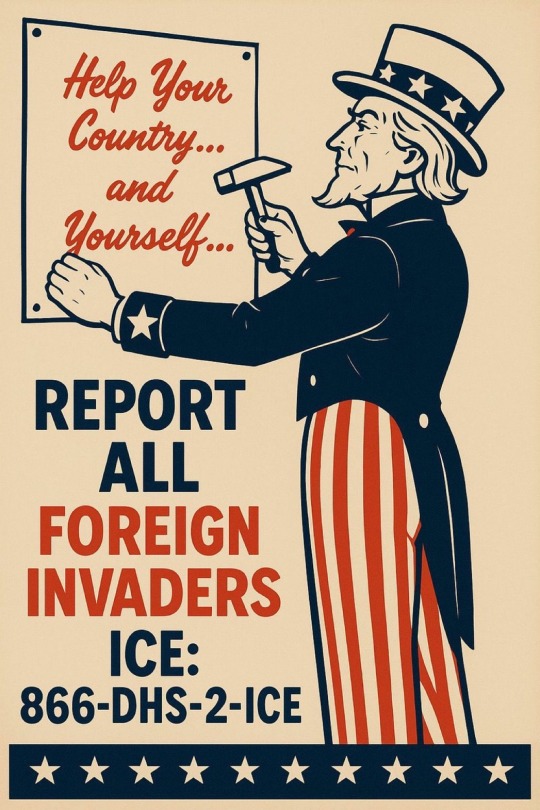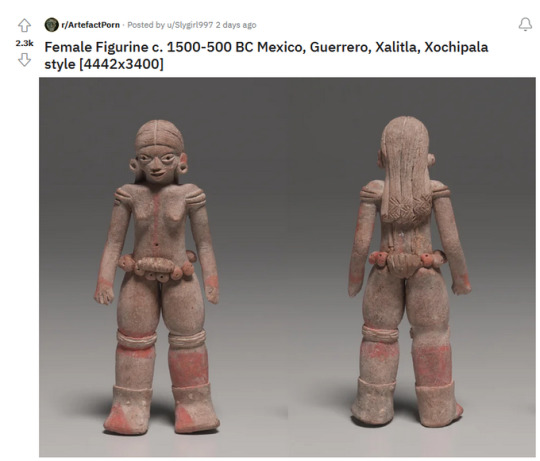#historicity
Explore tagged Tumblr posts
Text
Historians agree that Jesus existed, that there was a religious leader named Yeshua of Nazareth in 1st century Roman Judea who was crucified by the Empire, whether or not he was the son of the Hebrew god. Here's the thing, though; there are no contemporary accounts of Jesus. The Gospels were written 30 or 40 years after the fact and cannot be treated as unbiased historical documents, and the earliest non-Christian source mentioning Jesus is a Roman historian saying "there's this cult making trouble in the east because we crucified their leader almost 100 years ago." There are no records from the time of the crucifixion, only a century later. That's not exactly what I'd call irrefutable evidence. Maybe Jesus did exist, but if all we have to go on is his own book club's word and a handful of Roman footnotes, then what I think really happened is modern historians decided they weren't up for a fight over this. If they said there was no historical evidence Jesus existed then the Christians would shit their pants and throw another holy war hissy fit, dragging the entire world back for centuries, so everyone just agreed to let them have this. Oh yes, your book club's founder was a real person, not mythological like the Greek heroes or Gilgamesh, no doubt about it at all. I'm not saying he definitively did not exist, I'm just saying that there's not enough evidence to justify the scholarly consensus; there's plenty of room for doubt, but denying the historicity of Jesus is a fringe taboo.
97 notes
·
View notes
Text
On Gods and Lizard Tails
God(s) refuses to be captured by conceptual restraint. When we attempt to grasp infinity with finitude, at best we come up with lizard tails, that is, those self-severed bits that the lizard easily leaves behind when threatened, knowing it can grow another. Meanwhile, we humans enshrine those tails as the whole lizard, and then wonder why it is that they refuse to walk around or flick their tongues.
Archetypes and metaphors guide us into the mysteries of being, chiefly by being comprised in large part of that same mystery. When we work too hard to bind them to the temporal world in hopes of somehow capturing them, we often render them listless.
The real efficacy of these forces exists in their stories and inferences, in their images and allusions, which is to say with their chief occupation in the liminal space outside of the realm historicity and literality.
Zen Master Dae Hae once said that “the blue dragon is the most powerful being in all of existence precisely because it does not exist…if it did exist it would be finite, and therefore limited.”
~Sunyananda
#zen#buddhism#buddha#buddhist#dharma#enlightenment#sangha#awakening#nirvana#spirituality#god#gods#metaphor#archetype#literality#historicity#historical#literal#religion#spiritual#religious#theology
4 notes
·
View notes
Text

“Nadie se salva solo, nadie salva a nadie, todos nos salvamos en comunidad”.
— Paulo Freire. Transformational popular educator, pedagogical thinker and radical practitioner.
(“No one is saved alone, no one saves anyone, we all save ourselves in community.”)
+ If we die, we'll die together. As ourselves.
— Fionna. "Cheers" the tenth episode of Adventure Time: Fionna & Cake. This episode is the second and final part of the season finale.
2 notes
·
View notes
Text

Happy 10th birthday to the best tweet of all time.
42K notes
·
View notes
Text
Please note this reblog is just for the sake of its historicity. At this time, I have no comment and am not making any comment on the nature of mass migration of people.

616 notes
·
View notes
Text

Two Women Kissing in Nature (b. 1859)
— by Georges Rochegrosse
#art#artist#artblr#artists#painting#paintings#wlw#lesbians#lesbian#queer#gay#bisexuality#bisexual#lgbtq community#lgbt#lgbtqia#classic academia#classical art#romantic academia#aesthetic#pastelcore#pastel#princesscore#fine art#historical art#art history#art community#art blog#art gallery#oil painting
36K notes
·
View notes
Text






some alternative eras of lady normalgirl and her eunuch <3
#i do wanna do more of these this was so fun i love fashion history#lady normalgirl and her eunuch#historical fashion#fashion history#im not tagging all of it LOL#my doods#the edo period one was purely cause of shogun and that one litterbox comic LOL#also on 1780s one: in one of my many many marie antoinette biographies i read abt a woman who had a nest of birds in her hair pouf#so i figured a cat bed was just a logical step up from that#also on viking one every time we watch httyd as a family tucker has to deal w being called tuckless for days. so obvs#10k#20k
23K notes
·
View notes
Text
making aus for ocs are so funny cause like. theyre already in a situation… but what if they were in a DIFFERENT situation
#oc lore#my oc stuff#historical oc#oc poem#oc meme#oc artist#oc artwork#oc rp#ocs#oc#oc art#my ocs#oc x canon#alternate universe#original writing#creative writing#ao3 writer#writers on tumblr#writeblr
22K notes
·
View notes
Text
I don't know exactly how to articulate this but... if you repeatedly show historical fiction women rejecting traditionally female skills/duties and doing swords instead, because swords is obviously the Most Important Thing, you are kind of implying that all the work that has been traditionally done by female hands for millennia was useless all along and not, you know, keeping civilization going. Because it's usually rejected not as a personal preference but as This Is The Important Stuff (male work) and That is The Dumb Useless Stuff (women's work) and that kind of bothers me. The message was supposed to be Vital But Underpaid and Underappreciated, not women's work is insignificant so let's all go do swords.
#writing#historical fiction#like reject it because it's not your wheelhouse#but this idea that what women was doing was insignificant#like who kept people fed?#traditional women's work isn't unimportant it's underappreciated
15K notes
·
View notes
Text
We should, actually. It'll probably be confusing in to many people, but as one of the people above said it helps put historical periods in perspective with one another, and can piggyback a broader, global perspective onto the eurocentric mess many of us in the West are brought up with.
For example, it's interesting to know that the year of five emperors in Rome, a period where there was great uncertainty, coincided with the fall of the eunuchs and the period of great uncertainty in the Han dynasty that led to the three kingdoms period. Or that the English Magna Carta was signed during the rise of the Incan empire. Or that the rise of Mali as a powerful empire in West Africa coincided with the conquest of China and most of Asia by the Mongols.
Or any number of events or inventions that could be considered era-defining, really. History is so much easier to remember, so much more interesting to learn when you don't worry about the dates that can be easily looked up, and instead of focus on when and where things happened in relation to one another.
I mean dates are important, but only insofar as they inform and provide the context around events, and an establishing the historicity of events by tying them to dated documents. For a real lay understanding, context is king.
Whenever I see someone refer to "Victorian era-" for places outside the UK I'm tempted to start saying shit like "Han Dynasty era Rome", "Soviet era Australia" etc
163K notes
·
View notes
Text


“Mary Wallace was the first woman bus driver with the Chicago Transit Authority in 1974. Her job applications were rejected for three years, but her persistence paid off. She was eventually hired under an affirmative action program. Wallace became one of the city’s most popular drivers over her thirty-three year career.”
Happy Black History Month!
#Mary Wallace#black history month#black history#african american history#Chicago#american history#women’s history#history#historical figures
23K notes
·
View notes
Text


Some fanart of this ancient figurine! Also got commissioned to draw her hanging out with a friend!

108K notes
·
View notes
Text
The Confirming Details
When we cross-reference biblical passages, the confirming details build both out trust in the divine inspiration of the Bible, but also its historical reliability. Check out one example that Luke gives us in the Book of Acts.
Listen to the podcast of this post by clicking on the player below, and you can also subscribe on Apple, Spotify, or Audible. https://craigtowens.com/wp-content/uploads/2024/10/the-confirming-details.mp3 A couple of years ago I was in a car accident, but I never saw the car that hit me. Fortunately, the driver in the vehicle right behind me, a driver who was nearly hit by the car who hit me,…

View On WordPress
#apostle Paul#Book of Acts#confirmation#God&039;s Word#historicity#inspiration#Saul of Tarsus#Scripture
4 notes
·
View notes
Text
AHH!! Quickly!! The artefacts have escaped the museum!! 😘😘 This video is adorable :D
These ladies are wearing Tang Dynasty hanfu, the famous "golden age" of Chinese history. Artefacts show that aesthetics during this dynasty favored fuller shaped women, if you've ever seen the figures from the museums these ladies look like exact replicas :D
Video src: 包意凡 【博物馆闭馆时间到,我俩要粗去玩!】 https://www.bilibili.com/video/BV1iJ4m1K7Mq/


#hanfu#汉服#china#中国#chinese hanfu#culture#history#fashion#clothing#historical clothing#唐朝#tang dynasty
27K notes
·
View notes
Text
Book of the Day - The Order of Things
Today’s Book of the Day is The Order of Things ((Les Mots et les Choses in French), written by Michel Foucault in 1966, which I read in the 1994 edition published by Vintage. Paul-Michel Foucault (1926–1984) was a French philosopher, historian of systems of thought, philologist, psychologist, and social theorist. He was born in Poitiers, France, into an upper-middle-class family of surgeons, and…

View On WordPress
#anthropology#archaeology of knowledge#Book Of The Day#book review#classical age#Continental Philosophy#critique of humanism#discursive formations#enlightenment#episteme#epistemic rupture#epistemology#finitude#Foucault#French Philosophy#historicity#history of ideas#human sciences#intellectual history#knowledge systems#language and power#Las Meninas#Michel Foucault#modernity#philosophical anthropology#Philosophy#philosophy of history#philosophy of knowledge#Post-Structuralism#Raffaello Palandri
0 notes